State puts prison healthcare problems under a new health care service provider
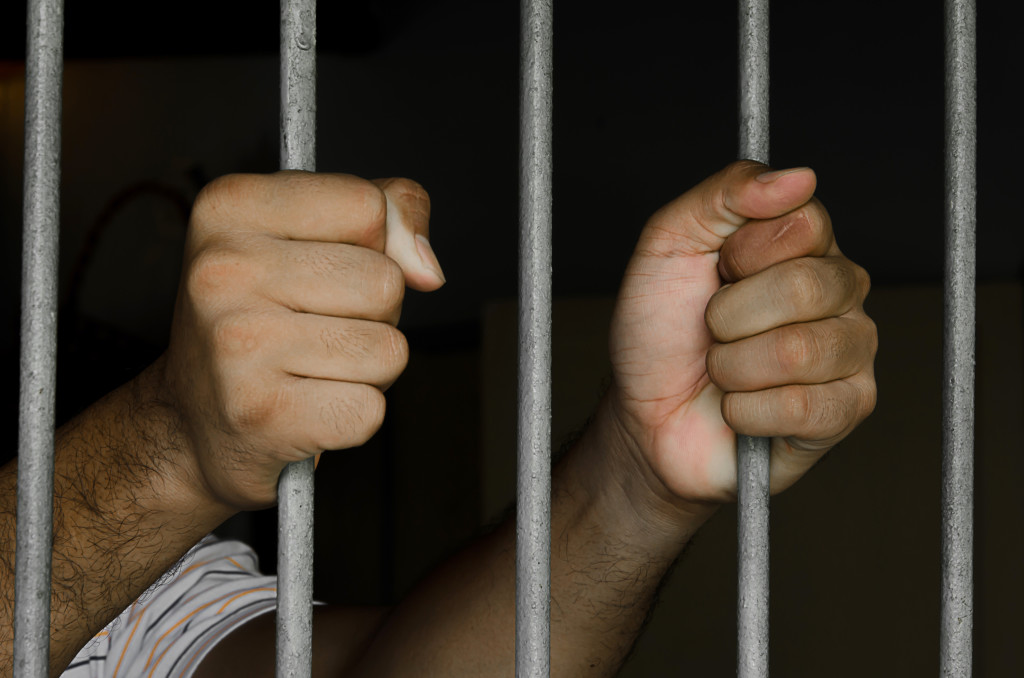
On Tuesday, the Alabama Department of Corrections (ADOC) announced that YesCare, Corp. has been selected to enter negotiations for the department’s comprehensive healthcare services contract. Inmate healthcare has been a problem in Alabama prisons for years. Alabama Today spoke with a psychiatrist who formerly worked for ADOC treating the inmates/patients. “Care sucked in the late 1990s and early 2000s,” said the doctor, who asked that his name not be used. “It sucked in the early-mid 20teens. It has been going on for 20 years. Guess what? It still sucks!” Alabama Today asked if recruiting physicians who want to treat convicted criminals is difficult. “It doesn’t suck this bad in other states,” the doctor said. “It doesn’t suck this bad at Bryce or at Searcy back in the day. Why must Alabama prison health care suck so bad for so long? Hint: idiots and cheapskates and apathy, mainly.” “I was seeing 36 to 40 patients a day,” the doctor continued. “It was ridiculous.” YesCare was among four healthcare companies that responded to the ADOC’s request for proposals (RFP), which was issued on September 26, 2022. In addition to YesCare’s proposal, the ADOC received submissions from Centurion, VitalCore, and Wexford. “The RFP evaluation committee conducted a thorough and extensive examination of each vendor’s proposal. After careful consideration of the evaluation committee’s recommendations, the ADOC decide to enter into contract negotiations with YesCare based on a combination of quality care and overall cost,” said Commissioner John Hamm. The Southern Poverty Law Center (SPLC) has sued the state in federal court on behalf of several current and former Alabama inmates, alleging that the state does not provide adequate mental health treatment, drug treatment, and healthcare to inmates. The lawsuit, Braggs v. Dunn, was filed in 201allegedlleges that ADOC systemically puts the health and lives of incarcerated people at risk by ignoring their medical and mental health needs and by discriminating against incarcerated people who have disabilities – violations of federal law by a prison system that has one of the highest mortality rates in the country. Ashley Austin is a staff attorney for the SPLC’s Criminal Justice Reform Practice Group. “Alabama must provide constitutionally adequate care for the human beings in its prisons,” Austin said. The SPLC and the Alabama Disabilities Advocacy Program joined the law firms of King & Spalding and Hogan Lovells in presenting evidence that they claim shows horrific and inhumane conditions inside the prisons. The state has been ordered by federal judge Myron Thompson to hire additional corrections officers. The state is also facing a U.S. Department of Justice lawsuit alleging that the conditions in Alabama’s 27 correctional facilities are so inhumane that incarceration in Alabama’s prisons constitutes cruel and unusual punishment and is thus unconstitutional under the Eighth Amendment. The negotiations on the final terms of the contract are expected to take weeks. In its recommendation, the RFP review committee considered the company’s experience and qualifications, delivery of care, program management, support services, staffing requirements, and compensation. The four-year and six-month contract will go into effect on April 1, 2023. YesCare is headquartered in Brentwood, Tennessee. They have more than 40 years of correctional healthcare experience, having served clients and patients at more than 475 facilities across the country. Details of the contract or even the bids have not been released to the public. Once the contract is final, all proposals and the results from the RFP review committee will be public record. To connect with the author of this story, or to comment, email brandonmreporter@gmail.com.
DOJ: Lawsuit should proceed over town’s police fines

The Justice Department is urging a federal judge to let a class-action lawsuit go forward against an Alabama town accused of policing for profit with excessive fines and aggressive enforcement of local laws. The U.S. attorney’s office this week filed a statement of interest in the civil lawsuit against Brookside. The lawsuit was filed by four people who paid hundreds of dollars in fines and said they were humiliated by what they described as a scheme to boost town revenue. Brookside is seeking to dismiss the lawsuit. The Justice Department argued that it should proceed against the police department and local officials. “Courts, prosecutors, and police should be driven by justice—not revenue,” an assistant U.S. attorney wrote in the court filing. The Justice Department said the United States has an interest in enforcing federal laws regarding the imposition and enforcement of unlawful fines and fees. “The United States also has an interest in addressing practices that punish people for their poverty, in violation of their constitutional rights.” Al.com reported in January that Brookside, which has a population of 1,253, saw revenue from fines and forfeitures jump 640 percent between 2018 and 2020 and grew to make up half the city’s total income. Lawyers for the town, in seeking to dismiss the case, wrote in a court filing that “very little is necessary to show that the fines and fees imposed by the Town of Brookside and/or the Brookside Municipal Court are rationally related to a governmental interest.” Institute for Justice, a group representing the plaintiffs in the case, welcomed the Justice Department’s action. “The Justice Department’s statement recognizes that Brookside’s abusive system of policing for profit violates the Constitution and that the town should be held accountable,” Jaba Tsitsuashvili, a lawyer with the group, said in a statement.
School system enters settlement in desegregation case

A federal judge has approved an agreement to settle a long-running desegregation case with a north Alabama school system, prosecutors said Wednesday. The school system agreed to take steps to ensure equal educational opportunities for Black students, including participation in gifted programs and college prep classes, officials said in a U.S. Department of Justice statement announcing the settlement with the Madison County School Board. “It is long past time to deliver on the promises of Brown v. Board of Education for our nation’s students,” Assistant Attorney General Kristen Clarke said in the statement. The majority-white school system agreed to take steps to: ensure a uniform process for identifying students for gifted services and make all parents aware of the program; identify students who could succeed in Advanced Placement classes and other college prep programs and encourage them to enroll; ensure non-discrimination in student discipline, and recruit more Black faculty members and school administrators. Rachel Ballard, the director of equity and innovation for Madison County schools, told reporters Wednesday the school system has already implemented several of the requirements. U.S. District Judge Madeleine Hughes Haikala approved the consent decree on Tuesday. The school system’s progress will be monitored for three years. Republished with the permission of The Associated Press.
Kay Ivey awards $4.8 million grant to help child victims of abuse
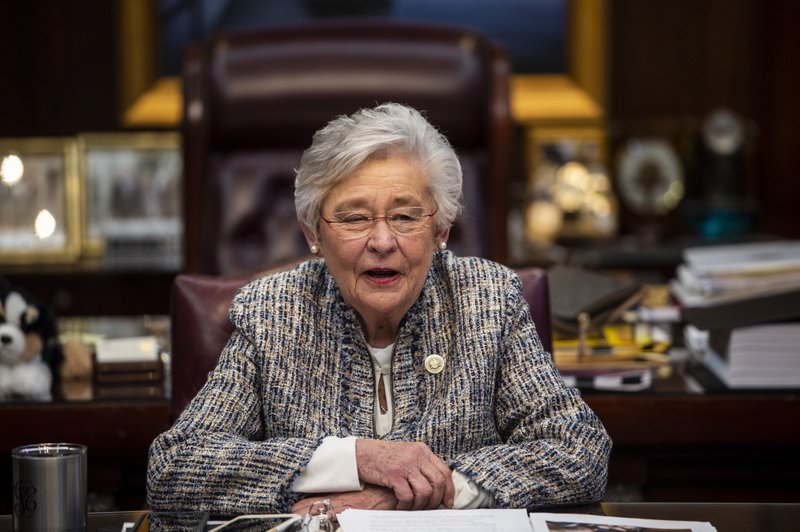
Gov. Kay Ivey has awarded grants totaling $4.8 million to help provide services to child victims of abuse, neglect, and sexual assault. The grants will provide training and resources to local law enforcement and nonprofit agencies and help many nonprofit organizations provide services including forensic interviews, mental health services, medical services referrals, advocacy, community education, and prevention services. “Young victims deserve to have the same professional services and help given to them as adult victims,” Gov. Ivey said. “I commend these agencies that work daily to help those who have been harmed and work to prevent further abuse.” The Alabama Department of Economic and Community Affairs (ADECA) will administer the grants from funds made available by the U.S. Department of Justice. ADECA administers a wide range of programs that support law enforcement, economic development, infrastructure upgrades, recreation, energy conservation, and water resources management. “ADECA shares Gov. Ivey’s dedication to protecting the most vulnerable among us by making sure child victims have the resources they need and that those helping the children are trained to provide the best assistance possible,” ADECA Director Kenneth Boswell stated. The following grants were awarded to various local and state agencies that provide direct services to victims and providers: Russell County Child Advocacy Center (Russell County): $66,240. Pike Regional Child Advocacy Center (Barbour, Bullock, Coffee, Pike): $109,440. Morgan County Child Advocacy Center (Morgan County): $229,440. The Children’s Advocacy Center of Cherokee County (Cherokee County): $140,160. Walker County Children’s Advocacy Center (Walker, Marion): $217,920. Escambia County Regional Child Advocacy Center, Inc. (Conecuh, Escambia, Monroe): $67,200. Family Counseling Center of Mobile, Inc. (Mobile County): $347,650. West Alabama Children’s Advocacy Center (Fayette, Lamar, Pickens): $83,520. Covington County Child Advocacy Center, Inc. (Covington County): $91,200. The Child Advocacy Center of Marshall County (Marshall County): $144,000. Talladega County Child Advocacy Center, Inc. (Clay, Coosa, Talladega): $82,560. DeKalb County Children’s Advocacy Center, Inc. (DeKalb County): $270,487. Cramer Children’s Center (Colbert, Franklin, Lauderdale, Lawrence, Winston): $583,680. James M. Barrie Center for Children, Inc. (Etowah County): $260,160. St. Clair Children’s Advocacy Center (St. Clair County): $65,280. Butterfly Bridge Children’s Advocacy Center, Inc. (Autauga, Chilton, Elmore): $270,720. CARE House, Inc. (Baldwin County): $116,160. Prescott House Child Advocacy Center (Jefferson County): $242,880. Calhoun/Cleburne Children’s Center, Inc. (Calhoun, Cleburne): $130,560. National Children’s Advocacy Center (DeKalb, Jackson, Madison, Marshall, Morgan): $597,983. Central Alabama Regional Child Advocacy Center (Bibb, Dallas, Hale, Perry, Wilcox): $105,600. Child Protect Inc. (Montgomery County): $131,520. The Child Advocacy Center of Cullman, Inc. (Cullman County): $234,477. Shelby County Children’s Advocacy Center, Inc. (Shelby County): $281,280.
DOJ: Alabama prisons unimproved, remain violent and deadly
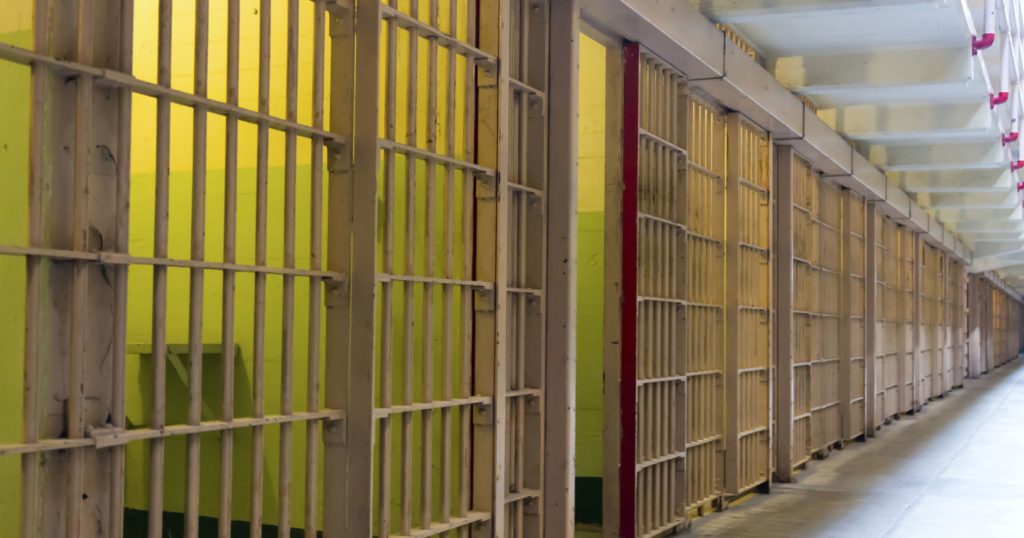
The U.S. Department of Justice says conditions in Alabama prisons have not improved since the federal government warned the state of unconstitutional conditions three years ago and that male inmates continue to live in deadly and dangerous conditions. The Justice Department last Friday filed an updated complaint in their ongoing lawsuit against Alabama over prison conditions. Justice Department officials wrote that violence remains unabated in facilities that are both overcrowded and “dangerously” understaffed. “In the two and a half years following the United States’ original notification to the State of Alabama of unconstitutional conditions of confinement, prisoners at Alabama’s Prisons for Men have continued daily to endure a high risk of death, physical violence, and sexual abuse at the hands of other prisoners,” the Justice Department wrote in the complaint signed by U.S. Attorney General Merrick Garland. The lawsuit accuses the state of operating prisons where conditions are so poor they violate the U.S. Constitution’s ban on cruel and unusual punishment and accuses state officials of being deliberately indifferent to the situation. While Alabama has acknowledged problems in state prisons, the state is disputing the Justice Department’s allegations of unconstitutional conditions and is fighting the lawsuit in court. The Justice Department’s latest filing came after a federal judge directed the department to be more specific about its accusations. The filing said dozens of inmates had been killed by other inmates in recent years and listed some of the specific incidents. In one case, a 53-year-old prisoner at Donaldson died after being strangled, and a note was found on the prisoner indicating he feared for his life because another prisoner had ordered a “hit” on him, officials wrote. The filing says at least 33 inmates were killed behind bars in 2018, 2019, and 2020. While the department reported no 2021 homicides in monthly reports, at least ten prisoner-on-prisoner homicides “have been reported by the media and advocates in the calendar year 2021,” officials wrote. The prison system does not include in its numbers deaths that are still under investigation. The Justice Department listed seven inmate homicides in 2021 where prisoners were stabbed, smothered, or choked to death. The Associated Press in September sent a records request asking for the number of inmate deaths under investigation as a potential homicide. The department responded on November 2 that it did “not label any death investigation as a ‘potential homicide,’ so we cannot provide that information.” The Justice Department wrote there is a pattern of excessive force by prison guards that is fueled by a dangerous mix of overcrowded prisons and too few officers. “Overworked security staff in the overcrowded prisons lack sufficient backup and support to manage prison security, which results in officers’ increased fear of prisoner threats and excessive force,” the department wrote. The department said, “most of Alabama’s prisons had correctional staff vacancy rates of over 50%” in the first quarter of 2021. The Justice Department also described a litany of safety and sanitation problems with buildings, including that “not one of the 13 Alabama’s prisons for men has a functional fire alarm system.” A state lawmaker, who has called for the firing of Corrections Commissioner Jeff Dunn, said Wednesday that the prison system is in crisis. “I’ve said it a million times. There is no leadership over there,” said Rep. Chris England, a Democrat from Tuscaloosa. Alabama Gov. Kay Ivey this fall signed into law a plan to use $400 million in pandemic relief funds to help build two 4,000-bed prisons and a new prison for women and renovate other facilities. Ivey and GOP legislative leaders touted the construction plan as a partial solution to the state’s longstanding problems in corrections. Critics argued buildings alone will not remedy the prison problems and said the state has needs in health care and education that could be helped by the $400 million. Republished with the permission of the Associated Press.
Federal prosecutors announce environmental justice probe in Lowndes County
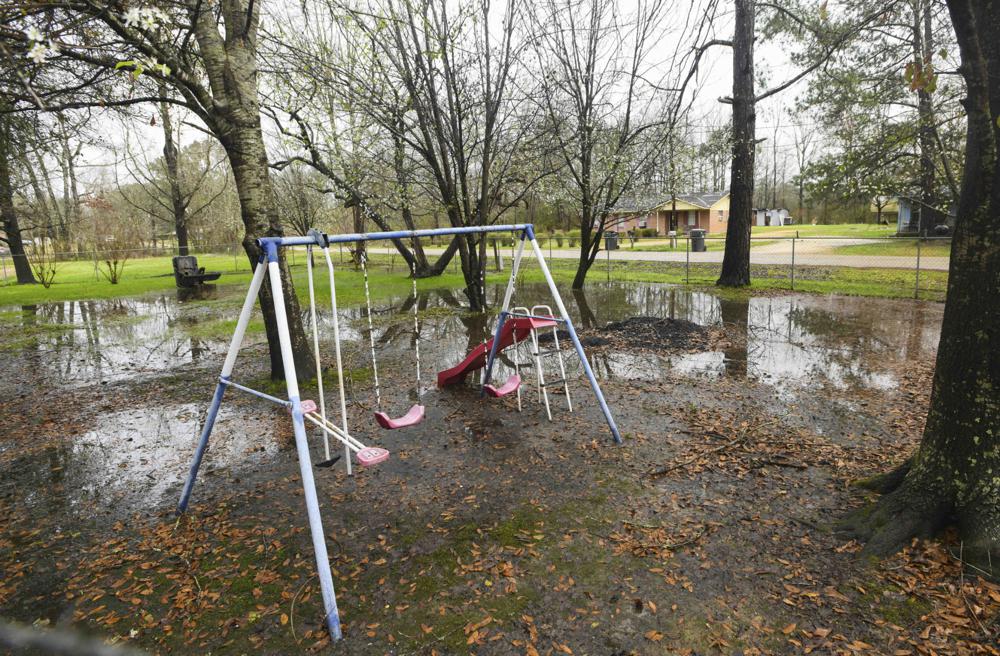
The U.S. Department of Justice said Tuesday that it has embarked on a historic environmental justice investigation into an impoverished Alabama county’s longstanding wastewater problems, which have left some residents with sewage in their yards. Federal prosecutors in the department’s civil rights division will examine whether state and local health departments have discriminated against Black residents of Lowndes County and have caused them to unjustifiably bear the risk of hookworm infections and other adverse health effects associated with inadequate wastewater treatment, officials said. “Sanitation is a basic human need, and no one in the United States should be exposed to risk of illness and other serious harm because of inadequate access to safe and effective sewage management,” Assistant Attorney General Kristen Clarke said. The Alabama Department of Public Health and the Lowndes County Health Department must operate their onsite wastewater disposal and infectious diseases and outbreaks programs in a safe and equitable manner, officials said. “State and local health officials are obligated, under federal civil rights laws, to protect the health and safety of all their residents,” Clarke said. Justice Department officials said officials in Alabama are cooperating, and they emphasized no conclusions have been reached regarding whether there’s evidence of racial bias in the state and county’s federally funded health departments. A spokesman for the Alabama Department of Public Health said they couldn’t comment on the pending probe. “ADPH is committed to cooperating with the investigating agencies to have this matter resolved as quickly as possible,” Ryan Easterling wrote in an email. This is the Justice Department’s first Title VI environmental justice investigation for one of the department’s funding recipients, and federal officials suggested there will be more to come since addressing discriminatory environmental and health impacts through enforcement of the nation’s civil rights laws is a top priority of the Civil Rights Division. Wastewater problems are well documented in Lowndes County, where at least 26% of the people live in poverty. Alabama’s Black Belt region gets its name for the dark rich soil that once gave rise to cotton plantations, but the type of soil also makes it difficult for traditional septic tanks, in which wastewater filters through the ground, to function properly. The region’s intense poverty and inadequate municipal infrastructure contribute to the problem. Maintaining septic tanks has typically been the responsibility of a homeowner, while local governments maintain sewage systems. Some homes in the rural county still have “straight pipe” systems, letting sewage run untreated from home to yard. Charlie Mae Holcombe of Hayneville described to The Associated Press in 2019 how the sanitation system in her small city will back up and overflow at times, sending raw sewage into her house and swamping the child’s swing set in her yard. “They have had to come and pump it out of my yard with the pump truck,” Holcombe said. “It’s backing up, even in my bathtub. The sewage has run over all in the house.” A study by Baylor University in 2018 estimated that about one-third of the county’s residents tested positive for low levels of hookworm, an intestinal parasite that typically spreads through human feces. It is most commonly found in non-industrial nations in the Southern Hemisphere. State health officials disputed the findings because of the small sample size and the methodology used. Republished with the permission of the Associated Press.
Prison staffing levels will be issue on DOJ lawsuit

A federal judge said prison staffing levels can remain an issue in the U.S. Department of Justice’s lawsuit against Alabama but said federal officials must provide more details behind some of their allegations. U.S. District Judge David Proctor, in a mixed ruling for the state Friday, agreed with state lawyers that the Justice Department’s allegations of unsafe and unsanitary conditions were overly broad. But the judge refused Alabama’s request to dismiss staffing issues from the litigation. The U.S. Department of Justice last year sued Alabama, saying state prisons violate the ban on cruel and unusual punishment because of high levels of inmate-on-inmate violence, excessive use of force by correctional staff, and unsafe and unsanitary conditions. The Friday ruling came after lawyers for Alabama sought to dismiss the claims related to “unsafe and unsanitary conditions and correctional staffing.” Alabama had sought to dismiss the staffing issue because the state faces a separate court order in another lawsuit to increase the number of guards working in state prisons. U.S. District Judge Myron Thompson, in an ongoing lawsuit over inmate mental health care, ordered Alabama to increase prison staffing. “These correctional staffing concerns duplicate issues that the Braggs Court (mental health case) already addressed and will soon fully and finally address in its final remedial order,” lawyers for the state wrote in a court filing. Proctor wrote the mental health case does not have a “preclusive effect.” He said the Justice Department can continue to allege that understaffing is a “contributing factor” to the problems in state prisons. However, the judge ruled the Justice Department’s earlier filing was an overly broad “shotgun pleading” and asked federal officials to provide additional details within 45 days. He directed the Justice Department to separate allegations by facility, such as asserting which facilities “fail to provide safe and sanitary conditions,” such as having defective locks or inadequate camera surveillance. He said the Justice Department must file the amended complaint within 45 days. The state is embarking on a massive prison construction project. Alabama Gov. Kay Ivey and lawmakers recently approved a plan to build two new 4,000-bed prisons and a new women’s prison and renovate other facilities. Six current facilities would close. The $1.3 billion plan will use $400 million of state funds from the federal COVID-19 relief bill called the American Rescue Plan. The Justice Department noted in an earlier report that dilapidated facilities were a contributing factor to the unconstitutional conditions but wrote “new facilities alone will not resolve” the matter because of problems in culture, management deficiencies, corruption, violence, and other problems. Republished with the permission of the Associated Press.
Kay Ivey to call special session on prison construction
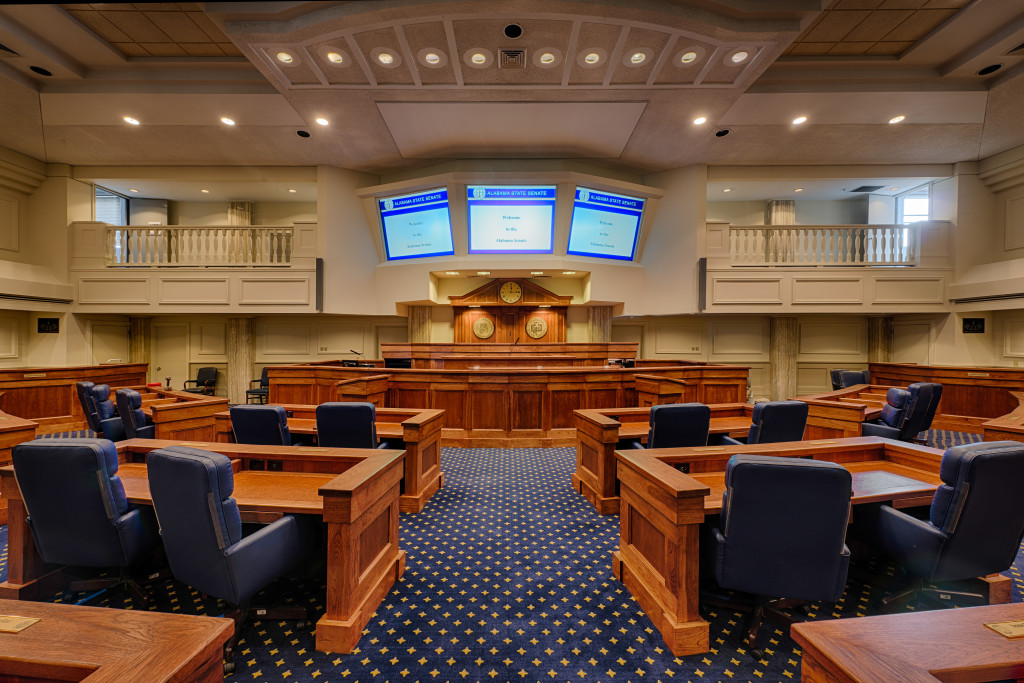
Alabama Gov. Kay Ivey is calling lawmakers into a special session later this month to vote on a prison construction plan that would use part of the state’s virus relief funds to jumpstart the building of three new lock-ups. In a letter to lawmakers announcing the special session, Ivey painted the construction project as a partial solution to the state’s longstanding prison woes — that have included a Department of Justice lawsuit over violence and a separate federal court order to improve mental health treatment behind bars. “We face an urgent need to address Alabama‘s long-standing prison infrastructure challenges,” Ivey wrote to lawmakers. “Failure to timely resolve these issues outlined in federal lawsuits could result in detrimental consequences for our state. Achieving an Alabama solution to these problems — rather than a federal court-ordered solution — is paramount.” While proponents said the construction would be a partial solution to the state’s long-standing prison problems, one lawmaker said it would put “old problems in new buildings” unless the state made additional reforms. “Just building prisons without engaging in some sort of comprehensive criminal justice reform is the definition of kicking the can down the road,” Rep. Chris England, D-Tuscaloosa, said. On the use of federal virus funds on the project, England said there are “obviously better uses of the money.” Ivey said the special session would begin Sept. 27 The proposal calls for three new prisons — at least a 4,000-bed prison in Elmore County with enhanced space for medical and mental health care needs; another at least 4,000-bed prison in Escambia County; and a women’s prison — as well as renovations to existing facilities. The projects would be done in phases and partly funded with $400 million from the state’s $2.2 billion share of American Rescue Plan funds, a key lawmaker who drafted the proposal said. “Right now, it looks like we’ve got the votes, but you never know until you get into session,” said Republican Rep. Steve Clouse, who is sponsoring the legislation. Clouse said construction is a “piece of the puzzle” in fixing the prison system and said this could be a defining moment for lawmakers. Tapping some of the state’s virus relief funds will enable the state to get started immediately with cash instead of waiting for a bond issue, Clouse said. “The stakes are high – without taking action on this issue, the federal government could take control of our prison system at a high cost to Alabama taxpayers and could even result in the forced release of prisoners. It’s time to finally resolve this issue for the people of Alabama,” Senate President Pro Tempore Greg Reed said in a statement. The U.S. Department of Justice has sued Alabama over conditions in the state’s prisons, saying it is failing to protect male inmates from inmate-on-inmate violence and excessive force at the hands of prison staff. The American Civil Liberties Union of Alabama said the Justice Department is concerned about more than just buildings. “Buildings alone will NOT address the DOJ concerns. We need real leaders who will,” the ACLU of Alabama wrote in a tweet. Republished with the permission of the Associated Press.
Plan would use virus funds, bond issue to build new prisons
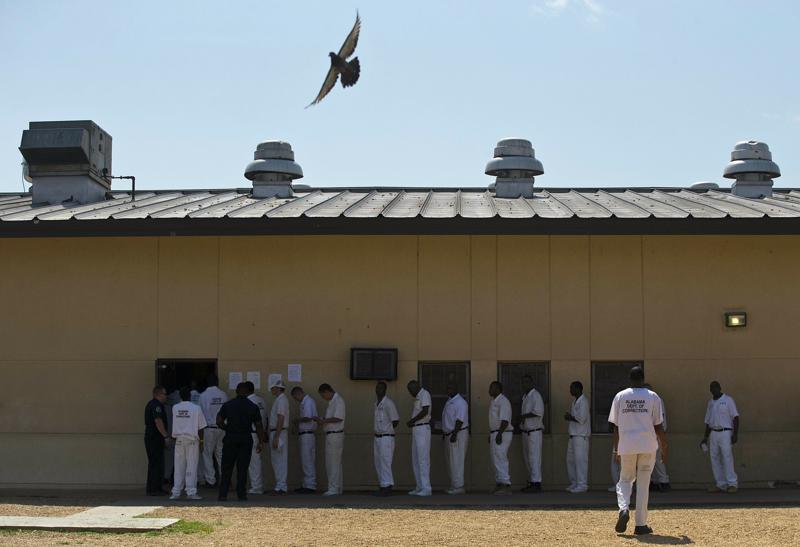
Alabama lawmakers on Wednesday began reviewing the latest prison construction proposal, a plan that would use a portion of the state’s virus relief funds to start building three new lockups. The proposal calls for three new prisons — at least a 4,000-bed prison in Elmore County with enhanced space for medical, mental, and other health care needs; another at least 4,000-bed prison in Escambia County; and a women’s prison — as well as renovations to existing facilities. The projects would be done in phases and partly funded with $400 million from the state’s $2.2 billion share of American Rescue Plan funds, a key lawmaker who drafted the proposal said. Proponents said the construction would be a partial solution to the state’s long-standing prison problems, which have drawn the scrutiny of federal regulators, but one lawmaker said it would put “old problems in new buildings” unless the state made additional reforms. The U.S. Department of Justice has sued Alabama over conditions in the state’s prisons, saying it is failing to protect male inmates from inmate-on-inmate violence and excessive force at the hands of prison staff. “It’s a part of the puzzle,” said Rep. Steve Clouse, the House budget chairman who worked on the proposal. “It will help us with overcrowding, to provide a safer environment,” said Clouse, a Republican from Ozark, who added that safer facilities should help the prison system recruit and retain employees. Lawmakers looked at the proposal in meetings this week ahead of a possible special session on prison construction. Clouse said the initial reaction was positive, but they will be taking a firmer vote count over the weekend to gauge support. However, Rep. Chris England, a Tuscaloosa Democrat, said new prisons will not “take care of the immediate humanitarian crisis in state prisons.” England said additional reforms are needed to address staffing, overcrowding, and violence. “In my opinion, until you deal with the lack of leadership in the department and the problems at Pardon and Paroles, you are just making new buildings and putting old problems in them,” England said. About a dozen friends and family members of inmates protested outside the Alabama Department of Corrections last week over conditions in state prisons that they argued will not be solved by new buildings. Angela Wells said her son died last October after being stabbed by another inmate at Easterling Correctional Facility. “When he first went there he told me, ‘Momma, I’m scared.’ I told him just keep on praying, that’s all you can do,” Wells said. The new plan comes after Gov. Kay Ivey’s plan to lease new prisons from private corrections companies fell apart when financers withdrew. Clouse said the state would own the facilities under the new plan instead of leasing them. He said using $400 million in Rescue Funds, as well as $150 million in general fund dollars, would allow the state to build the first facility without borrowing money and paying interest. The bill authorizes a bond issue of up to $785 million to pay for the rest of the construction. “This whole plan, I think, is a win-win-win for the taxpayers,” Clouse said. Ivey sent lawmakers a letter this week asking them to consider the proposal to address the state’s long-standing, yet urgent, prison infrastructure challenges.” “I do not use the word urgently lightly,” Ivey wrote, noting the state faces the possibility of federal court orders unless the problems are addressed. Republished with the permission of the Associated Press.
Alabama asks feds if COVID funds can be used for prisons

Alabama is asking federal officials whether COVID-19 recovery funds can be used to improve state prisons with “better, enhanced, and/or extended infrastructure.” The Montgomery Advertiser reports that Corrections Commissioner Jeff Dunn sent a letter to the U.S. Treasury Department asking the question. Dunn framed the request as enhancing health care and programming for inmates. Lawmakers have previously said they want to know if pandemic recovery funds can be used for prison construction and renovations. The question arose after Gov. Kay Ivey’s plan to lease prisons fell apart because of financing concerns. “The average age of ADOC’s facilities is over 43 years old, and while many have expanded, most have exceeded, in the past, the original design capacity,” the letter said. “Because of this, medical and mental health care and programming space is limited in many of ADOC’s facilities.” Dunn’s letter said prison improvement would comply with the guidance in federal rules that the money, along with financially helping households and businesses, can help with “systemic public health and economic challenges that may have contributed to more severe impacts of the pandemic among low-income communities and people of color.” Dunn wrote that almost all prisoners are considered indigent, and more than half are “people of color.” “These disadvantages were further exacerbated by the communal living situation,” he wrote. The letter says the prison system could use the money to increase space in prisons for health care staffing and programming and expand broadband to offer more remote learning. The U.S. Department of Justice last year sued Alabama over conditions in the state prisons, saying the state is failing to protect male inmates from inmate-on-inmate violence and excessive force at the hands of prison staff. The lawsuit alleges that conditions in the prison system are so poor that they violate the ban on cruel and unusual punishment and that state officials are “deliberately indifferent” to the problems. The state is disputing the Justice Department’s allegations. Republished with the permission of the Associated Press.
Underwriter withdraws from Alabama prison lease project
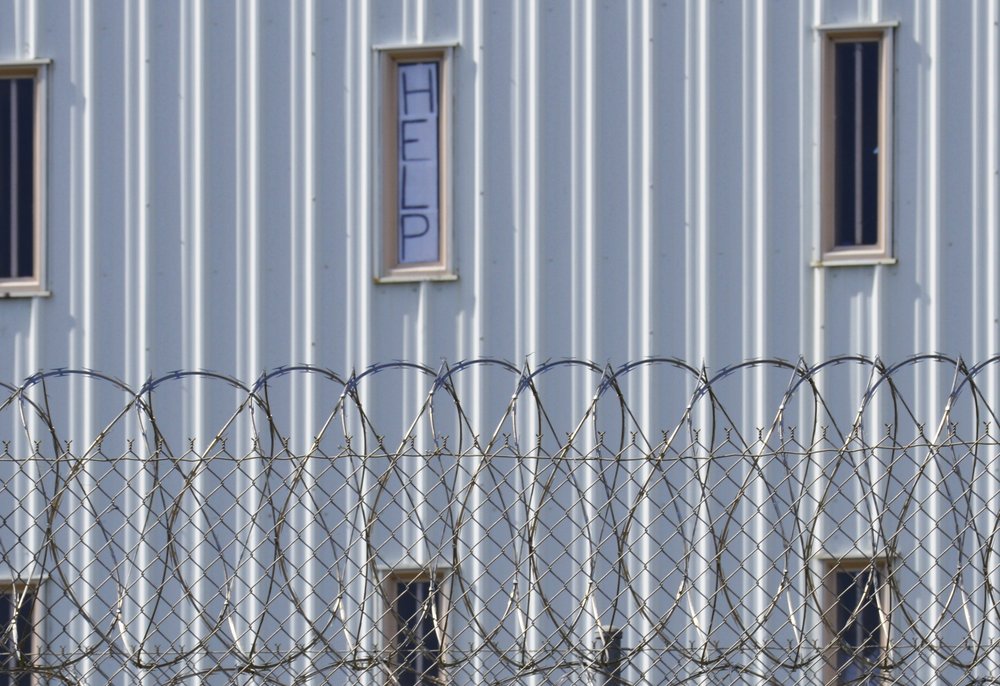
The underwriter for a project to build two prisons in Alabama announced that it is pulling out following criticism that it was breaking a promise not to get involved in for-profit prisons. Barclays confirmed that it would no longer be involved with CoreCivic’s construction of two prisons in Alabama that would be owned by the company but rented and operated by the Alabama Department of Corrections. The decision dealt a blow to the plan to lease the behemoth prisons, housing about 3,500 inmates each, though Alabama Gov. Kay Ivey’s office said the state is “moving forward” with the project. “We have advised our client that we are no longer participating in the transaction intended to provide financing for correctional facilities in the State of Alabama,” Barclays wrote in a statement to The Associated Press. “While our objective was to enable the State to improve its facilities, we recognize that this is a complex and important issue. In light of the feedback that we have heard, we will continue to review our policies.” Ivey agreed in February to lease two mammoth prisons as a partial solution to the state’s troubled correction system. The decision came over the objections of some legislators and advocates who warn that her $3 billion plan won’t resolve chronic violence and severe understaffing woes. The two 30-year lease agreements are with separate entities of CoreCivic, one of the nation’s largest private prison companies. The prisons are to be built in Tallassee and near Atmore. The governor’s office is negotiating with another company to build a prison in Bibb County. The governor said Monday that she is disappointed that Barclays Plc is no longer participating but said the state will continue to press forward. “The state is fully committed to this project and has put in place new options to advance this vital transaction in a timely and efficient manner,” Ivey said. Her office did not immediately elaborate on what those options are. Ivey has said new prisons are the cornerstone to improving the state’s troubled corrections system. “These new, state-of-the-art facilities will provide safer, more secure correctional environments that better accommodate inmate rehabilitation, enhance medical and mental health services, and improve the quality of life for all those who live and work in them,” Ivey said. The U.S. Department of Justice sued Alabama in December over prison conditions, saying the state is failing to protect male prisoners from inmate-on-inmate violence and excessive force at the hands of prison staff. A Justice Department’s 2019 report, which preceded the lawsuit, described a culture of violence across the state prisons for men with frequent rapes, beatings, and fatal stabbings at the hands of fellow prisoners and a management system that undercounts homicides and fails to protect prisoners even when warned. A federal judge has also ordered the state to overhaul prison mental health care and staffing after ruling the mental health system in state prisons to be “horrendously inadequate.” A group of advocacy organizations said paying such huge sums to CoreCivic won’t solve underlying problems of understaffing, violence, mismanagement, and overcrowding. They’re calling instead for solutions such as sentencing reform to ease crowding behind bars. Some lawmakers also have raised concerns about the cost of the project. “At this point, it should be obvious that @ALCorrections doesn’t have a clue how much this plan is going to cost. 3 billion was already too much. Now that financing is an issue, the price will only continue to increase. It’s time to get out of this deal,” state Rep. Chris England, D-Tuscaloosa, tweeted. CoreCivic in a statement criticized the people and groups who pushed Barclays to withdraw. “The reckless and irresponsible activists who claim to represent the interests of incarcerated people are in effect advocating for outdated facilities, less rehabilitation space, and potentially dangerous conditions for correctional staff and inmates alike,” the statement from CoreCivic read. Republished with the permission of the Associated Press.
Study commission recommends prison system policy reforms
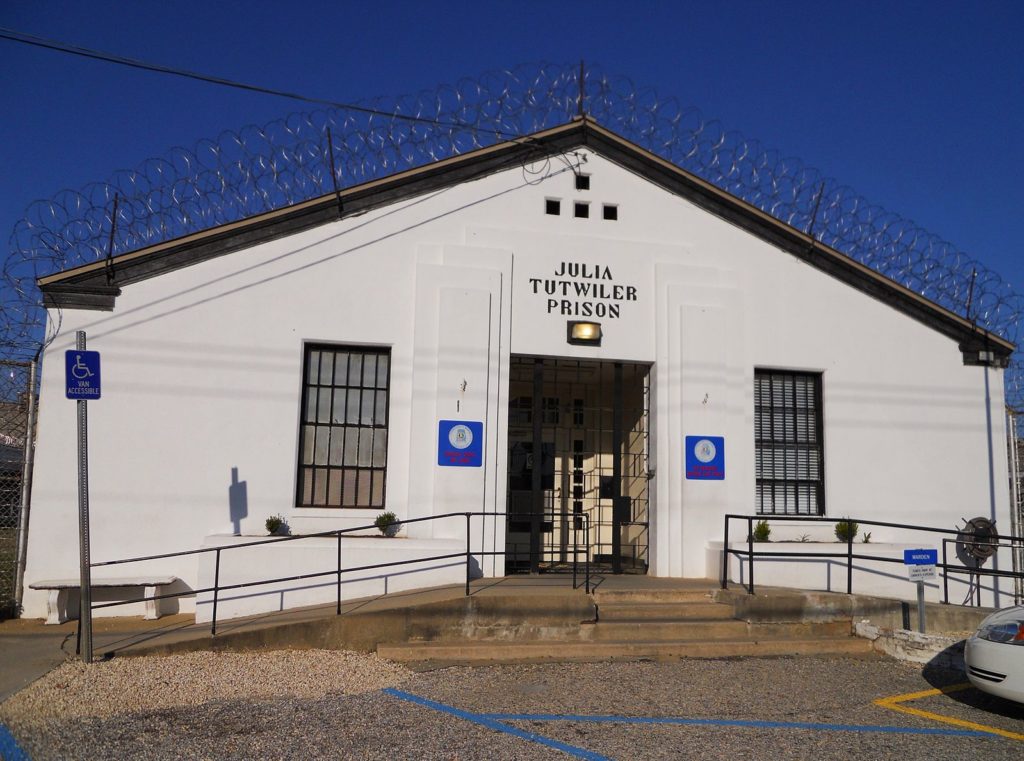
The letter to the governor cautioned there will be no quick or inexpensive, fix.

